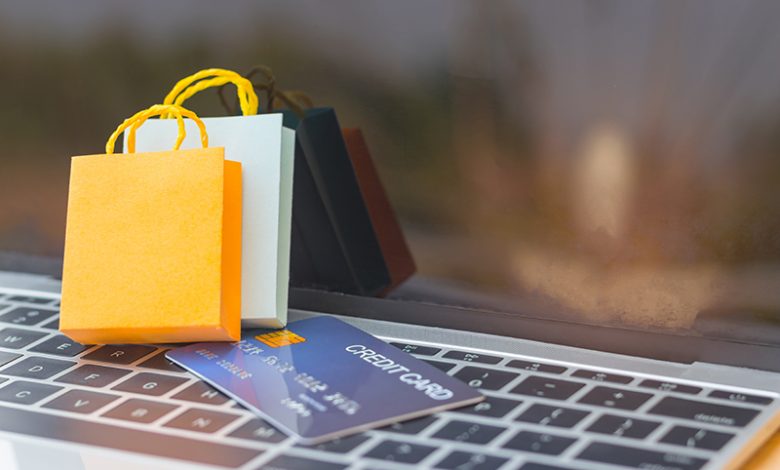15 hints for safer online purchasing

Online buying may be a lot amusing: You Wi-Fi wireless vivid object you like, click the “purchase” button and get a bundle brought in your door.
However, those transactions don’t always go so smoothly. In 2019, the FBI’s net Crime criticism middle has given an average of one,300 online robbery complaints an afternoon with a complete of three. Wireless billion in losses to people and groups.
The FBI recently has had more proceedings about purchasers no longer receiving goods purchased online. a few of the consumers fell for “offers” advertised on social media or seek engine shopping pages. They both got nothing or obtained a random item like a container of disposable facemasks that would be lower back most effective via paying a high international delivery rate.
those scammers can without a doubt suck the joy out of buying. check out our online buying protection tips so you can avoid becoming their state-of-the-art victim.
1. shop online with Wi-Fi outlets
It’s best to store immediately with online retailers you recognize and consider. Bookmark your favorite purchasing websites to get there fast and properly and suggestively using the best coupon extension to save even more. Keep away from typing the store’s name into your browser bar.
That’s because a tiny typo may want to land you on a faux site that looks much like the real one. Make a “buy” on an illegitimate website, and you can unwittingly hand the scammers your credit score card variety and other private information.
2. Vet new-to-you businesses
Did you notice a Wi-Fi wireless product from a new dealer? Do your homework on any commercial enterprise you’ve by no means bought from within the past. Search for online reviews and seek the higher Business Bureau website for complaints. Check the “contact us” page on the internet site for a U.S. deal with and call variety. Then take it a step similarly: name the business Wi-Fi.
Why? The FBI stated that some scammers hijack the contact data of actual U.S. companies to make their shady websites online look legitimate.
3. watch out for great deals
Did you see an ad on Facebook or Instagram offering rock-bottom prices or a watch-popping offer of unfastened stuff? Reports of lost cash from social media scams have more than tripled in the past year, in step with the U.S. Federal trade commission (FTC).
Don’t forget, if a proposal looks too precise to be authentic, then it probably is. The FBI observed that many websites in the middle of its latest spate of lawsuits have been marketed on social media platforms.
Examine expenses before you purchase. Unusually low charges could be a purple flag that you’ve landed on a fake web page that’s been set up to snag your non-public statistics or steal your cash.
4. don’t browse on public Wi-Fi
Avoid buying from public Wi-Fi next time you’re sipping a latte at your favorite espresso save. The fellow observing his telephone at the next table might be a hacker spying on your online pastime.
And buying online frequently requires giving out statistics that a Wi-Fi thief would really like to seize, consisting of your call, address, and credit card wide variety.
5. Use a VPN
Shield yourself with a VPN (digital non-public network). A VPN creates an encrypted tunnel between your computer and the server.
Cybercriminals lurking close by gained to be able to see what you’re doing or intercept your non-public records. A VPN is the only manner to store online properly from public Wi-Fi in airports, cafés, and different public spaces.
6. pick strong passwords
A sturdy password is sort of a relaxed lock that keeps cyberthieves out of the bills in which you store your personal records. Right here are some short suggestions on the way to pick a good password:
Use a complex set of decrease and uppercase numbers, letters, and emblems. Or bear in mind a protracted passphrase that you can recall and others are unlikely to guess.
Keep away from dictionary words and personal facts a thief could effortlessly Wi-Fi wireless or guess, like your kid’s birthdate, your dog’s name, or your favorite sports group.
In no way reuse passwords throughout websites. In case you do, an information breach at one corporation may want to supply criminals to get admission to on your other debts.
7. check website protection earlier than you buy
Search for a lock icon in the browser bar of a website to Wi-Fi that they use SSL (comfortable sockets layer) encryption. The URL additionally ought to start with “HTTPS” instead of simply “HTTP.”
Cozy websites are configured to mask the records of your percentage, which includes passwords or monetary data. Shopping only on relaxed websites reduces the chance that your non-public statistics may be compromised at the same time as you keep.
8. Don’t fall for e-mail scams
you might get emails or texts presenting notable deals or claiming there’s been a problem with a package deal shipping. Delete suspicious messages from unexpected senders. And don’t open attachments or click on links in messages because they could infect your laptop or smartphone with viruses and other malware.
9. defend your non-public records
Here’s a well-known rule: No shopping internet site has to ever ask for your Social security number. If a site does request this type of very personal fact, run in a different direction.
Provide reputable dealers with the minimum personal information important in order to complete wireless a purchase.
10. Pay with credit, not debit
Continually use a credit card to save as securely as feasible. First, a credit card doesn’t deliver a vendor direct get right of entry to the money on your financial institution account. Second, maximum credit playing cards provide zero liability for fraud.
This means you’re now not out any cash if a criminal uses your account info to make a buy. Your credit card enterprise will ask questions, inspect the fraudulent pastime and send you a new card.
11. upload greater protection with a digital credit scorecard
A virtual credit card can provide even more online shopping protection. A few credit scorecard issuers will provide you with a temporary card range that’s linked to your credit score card account.
You can use the temporary range to save online without displaying the seller your actual credit scorecard details. If a thief receives a hold of the virtual credit card wide variety and later attempts to use it, they’ll be out of a good fortune.
12. preserve an eye fixed out for fraud
Test your financial institution and credit scorecard statements for fraudulent prices at least as soon as every week. Or set up account alerts to notify you of any new interest for your card. While you get hold of a text or e-mail notification, you may test your account to make sure you understand the rate.
13. mind the information
Once you make the purchase, preserve the information in a safe location. Hang onto the receipt, your order confirmation number, and the monitoring range the vendor presents. When you have a problem with the order, this record will help you get the issue resolved speedily.
14. music your stuff
Once you make a web buy, hold tabs on it to make sure it’s headed your way. If the service provider refuses to provide shipping data or reply to your requests for the status of your order, contact your credit scorecard company for help. They’ll eliminate the charge from your bill and inspect the problem.
15. wi-fi wireless scammers
Did you get scammed? In that case, wireless a grievance with the U.S. Federal alternate commission and the FBI’s net Crime grievance middle. Tip: in case you suspect you will be a victim of Wi-Fi theft, the FTC gives an identity wireless robbery recuperation plan.
But following these online buying safety guidelines might also help you foil scammers and avoid becoming a goal within the first location.






